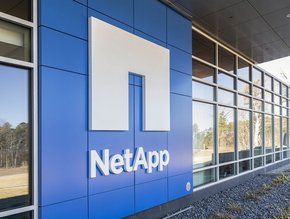Cisco: More than 1 in 4 Organisations Have Banned Gen AI Use

More than one-quarter of organisations have banned the use of generative AI (Gen AI), highlighting the growing privacy concerns with Gen AI and the trust challenges facing organisations over their use of AI.
Cisco’s 2024 Data Privacy Benchmark Study comes amid ongoing discussions about the potential exploitation of Gen AI by bad actors - with an earlier report from ISACA showing 99% are worried to some extent about the technology’s impact on their business.
Among the top concerns in Cisco’s report were the threats to an organisation's legal and Intellectual Property rights (69%), and the risk of disclosure of information to the public or competitors (68%).
Most organisations said they are aware of these risks and are putting in place controls to limit exposure. Almost two-thirds (63%) said they have established limitations on what data can be entered, 61% have limits on which Gen AI tools can be used by employees and 27% said their organisation had banned Gen AI applications altogether for the time being.
“Organisations see Gen AI as a fundamentally different technology with novel challenges to consider,” comments Dev Stahlkopf, Cisco’s Chief Legal Officer. “More than 90% of respondents believe Gen AI requires new techniques to manage data and risk. This is where thoughtful governance comes into play. Preserving customer trust depends on it.”
Cisco report highlights slow progress on AI and transparency
Consumers are concerned about AI use involving their data today, and yet 91% of organisations recognise they need to do more to reassure their customers that their data is being used only for intended and legitimate purposes in AI.
Organisations' priorities to build consumer trust differ from those of individuals. Consumers identified their top priorities as getting clear information on exactly how their data is being used, and not having their data sold for marketing purposes. Businesses, meanwhile, identified their top priorities as complying with privacy laws (25%) and avoiding data breaches (23%). Cisco’s report suggests additional attention on transparency would be helpful, especially with AI applications where it may be difficult to understand how the algorithms make their decisions.
Privacy and trust: The role of external certifications and laws
Organisations recognise the need to reassure their customers about how their data is being used, and 98% said that external privacy certifications are an important factor in their buying decisions.
Despite the costs and requirements privacy laws may impose on organisations, 80% of respondents said privacy laws have had a positive impact on them, and only 6% said the impact has been negative. Strong privacy regulation boosts consumer confidence and trust in the organisations they choose to share their data with.
Over the past five years, privacy spending has more than doubled, benefits have trended up, and returns have remained strong. This year, 95% indicated that privacy's benefits exceed its costs, and the average organisation reports getting privacy benefits of 1.6 times their spending. Further, 80% indicated getting significant "Loyalty and Trust" benefits from their privacy investments, and this is even higher (92%) for the most privacy-mature organisations.
In 2023, the largest organisations of 10,000+ employees increased their privacy spending by 7-8% since last year. However, smaller organisations saw lower investment, for example, businesses with 50-249 employees decreased their privacy investment by a fourth on average.
“94% of respondents said their customers would not buy from them if they did not adequately protect data,” explains Harvey Jang, Cisco Vice President and Chief Privacy Officer. “They are looking for hard evidence that the organisation can be trusted. Privacy has become inextricably tied to customer trust and loyalty. This is even more true in the era of AI, where investing in privacy better positions organisations to leverage AI ethically and responsibly.”
******
Make sure you check out the latest edition of Technology Magazine and also sign up to our global conference series - Tech & AI LIVE 2024
******
Technology Magazine is a BizClik brand
- NetApp Cloud Complexity: Reliable Data is Key to AI SuccessCloud & Cybersecurity
- AMD: Expansion, Growth and Doubling Down on AI InnovationAI & Machine Learning
- Globant to Drive Formula 1’s Digital TransformationDigital Transformation
- HPE: Businesses Must Tackle Blind Spots in AI StrategiesIT Procurement






